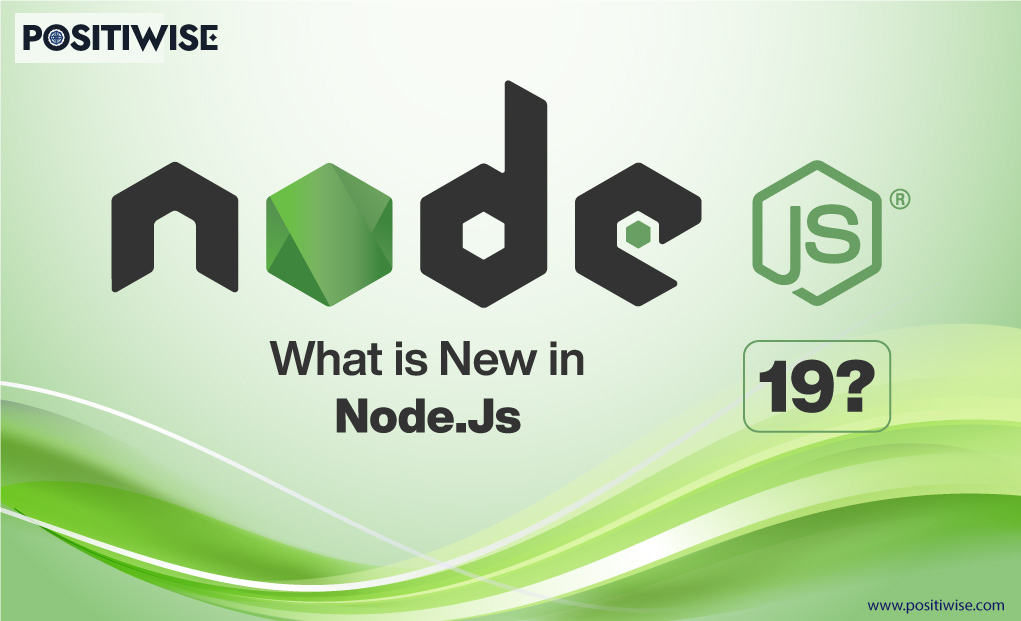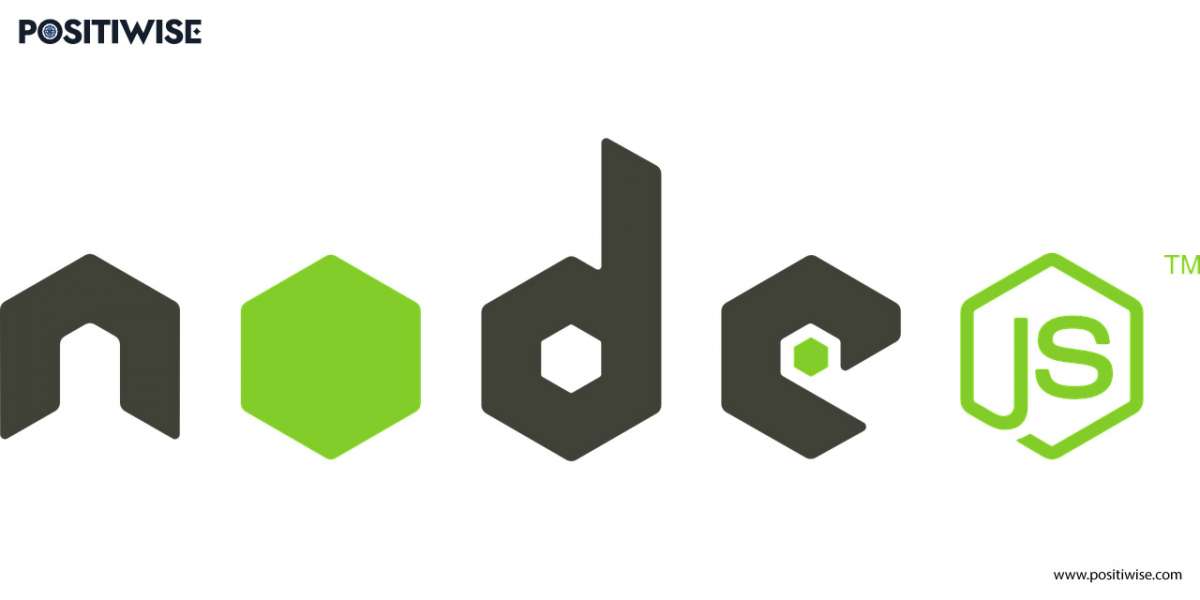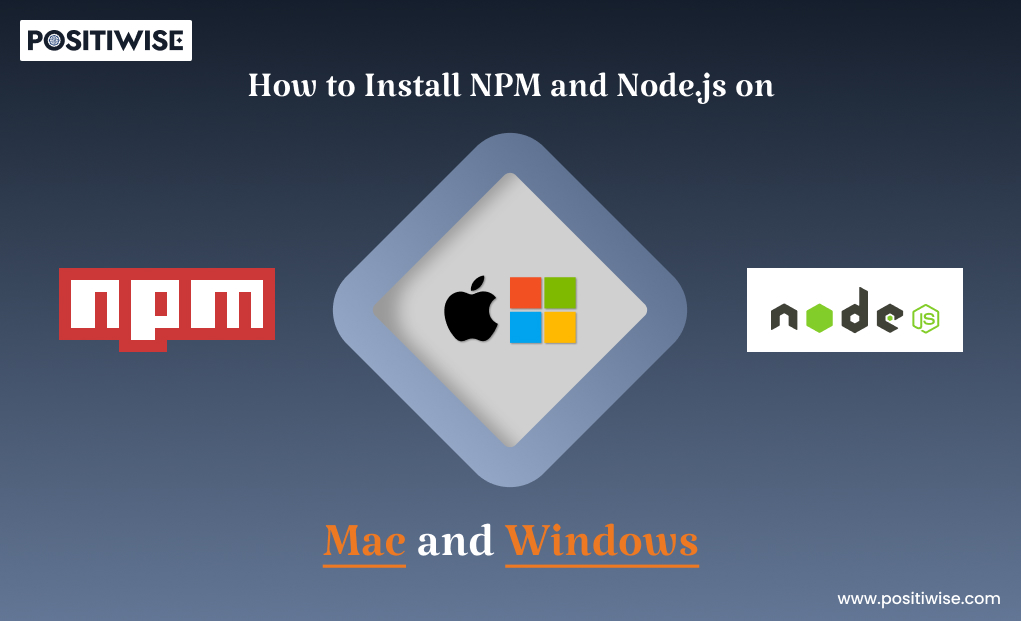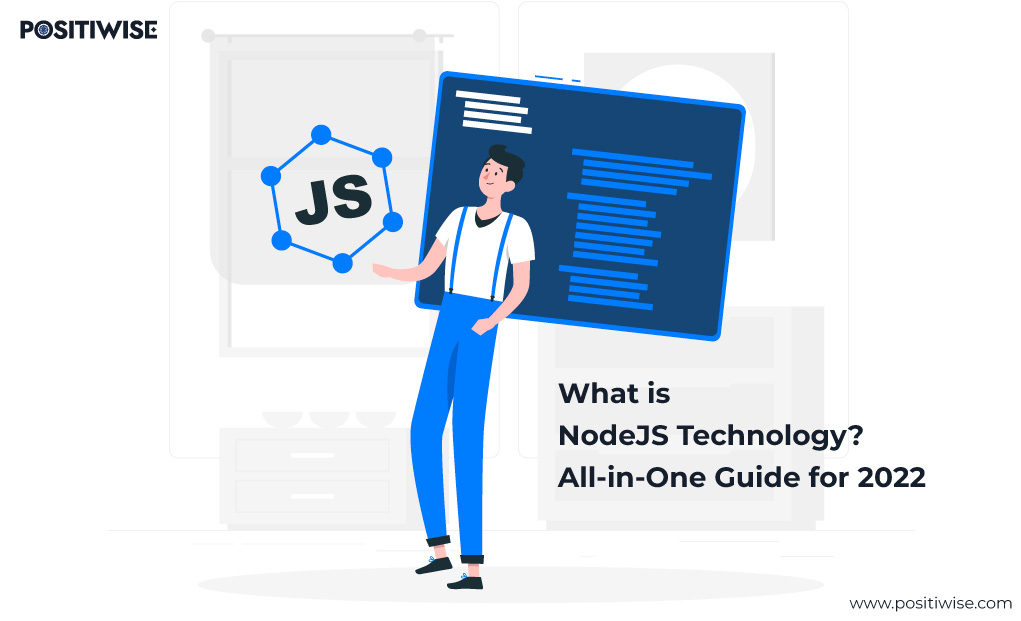Quick Overview:
Node JS 19 represents the upcoming iteration of the widely used open-source server-side JavaScript runtime employed by millions of developers. The experimental Node has engineered the functionality to operate on Linux, macOS, and Windows. It provides developers with a robust JavaScript runtime for constructing rapid and scalable network applications. The latest version of Node.js includes many new features, including tools for working with graphics, text editors, IDEs, WebAssembly support, and V8 improvements to improve performance and reliability.
Node.js 19 also includes several security improvements, such as improved protection against buffer overflows, improved cryptography support, and better process isolation. In this article, you will know the updates in node js 19.
What is Node Js?
Node.js applications utilize the core JavaScript runtime to implement server-side features such as asynchronous data streams, event-driven I/O, messaging, and more. Node.js is an open-source software project that implements the V8 JavaScript runtime and other core libraries over HTTP connections. The project also includes a package manager called npm, which manages dependencies like the transpilation of code during bundling. NodeJS is a JavaScript library for building fast and scalable network applications. It is built on Chrome’s V8 JavaScript engine.
Node.js has become the backend platform of choice for many developers because of its performance, speed, scalability, support for asynchronous I/O, ease of use, and rich ecosystem (npm). It is open source and free for commercial use under the MIT License, but you can also purchase a commercial license if needed. Node.js has become the backend platform of choice for many developers because of its performance, speed, scalability, support for asynchronous I/O, ease of use, and rich ecosystem (npm).
Updates in Node Js 19
Here are the new updates of node js 19:
- The HTTP(S)/1.1 KeepAlive:
- Experimental Node:
- Stable WebCrypto (WCF):
- MVC:
- Web API:
- Custom ESM Resolution Adjustments:
- Starter:
The HTTP(S)/1.1 KeepAlive:
The KeepAlive header field is an experimental web technology whose use can be considered a workaround for the lack of persistent connections in HTTP/1.1 servers and has been obsoleted by more recent specifications. The HTTP/2 protocol supports persistent connections, a major improvement over HTTP/1.1. However, one HTTP feature that has been a long-standing request from the community is to add the ability to send KeepAlive headers in the opposite direction.
This would allow clients to keep connections open between requests without having to do any special work on the server side to achieve it. This is especially useful for mobile applications with intermittent connectivity issues, and your app needs to keep working even when temporarily unavailable. The KeepAlive header field defines a mechanism to allow clients to make multiple requests without sending requests repeatedly. The client can send the first request, which the server will forward, and then, later on, it can send additional requests without waiting for the previous one to finish.
Experimental Node:
In the experimental Node, you can specify the number of seconds to maintain keep-alive connections using the keepalive option. The value is specified in seconds and must be between 1 and 10 seconds.
The experimental feature allows you to specify a maximum number of connections to open on the server, which can improve performance for your application if there are more clients than available connections. The default value for this option is 10 seconds, which means that all connections will use a timeout of 10 seconds before being closed by the server. The minimum value is 1 second and the maximum value is 10 seconds.
Stable WebCrypto (WCF):
Node.js 19 will officially support WCF (Windows Communication Foundation) and its new stable web crypto implementation, which allows the browser to communicate securely with the server without sending any sensitive data in clear text, even over HTTP. WebCrypto (WCF) is the new IIS feature that allows you to encrypt and decrypt data securely. WebCrypto is a WCF feature that enables encryption and decryption of XML, JSON, and binary data on the fly as it flows through your application.
This means you can use WebCrypto to encrypt requests at run time instead of sending sensitive information over the wire twice. Node JS 19 includes support for WebAssembly in both V8 and WCF. The Node community has been working hard on implementing the necessary features to make WASM work within an application.
MVC:
This allows you to create a new server using Node.js and Webpack but with all your application logic in a separate file. This makes it easier to test your application as it becomes more complex. Node.js 19 introduces a new ” MVC ” module that helps developers build their applications using the Model-View-Controller (MVC) architecture. This alternative to the more traditional plugin model can be used with any framework or library. MVC is a design pattern that separates an application into three parts: Model, View, and Controller. The model is responsible for holding the data used by the view to render the application. The controller is what controls the flow of data between models and views. Node’s MVC framework is getting a major in Node 19 to build applications with multiple front-ends and back-ends.
Web API:
A Web API is a server-side service that uses HTTP as its transport protocol. It allows you to build modular, decoupled applications using JSON as its data format. Node.js 19 introduces a new module called “Web API” that helps developers build their applications using the Model-View-Controller (MVC) architecture. This alternative to the more traditional plugin model can be used with any framework or library. In this release, we also added support for creating an API endpoint using Web API. Swagger automatically configures the API endpoints, simplifying user interaction with your application. Users can easily access information about their accounts or view transactions.
Custom ESM Resolution Adjustments:
Most developers use Node as an alternative to building browser-based applications with HTML, CSS, and JavaScript to build scalable network applications from the ground up. The Node.js community has been working hard to update the Node.js core to support new features and improvements. The first of these, Custom ESM Resolution Adjustments, is now available in all Node.js 19. Custom ESM Resolution Adjustments are now available for the Starter plan. Users can save up to three custom resolution settings in their profiles and apply them across any NodeJS instance using a single master key.
Starter:
The official Node.js repo includes the starter package, which provides a lightweight way to get started with Node development. Simple web application using express, body-parser, cookie parser, and socket.io Server Manager. Node v19 includes a brand new “Starter” feature which allows you to write your first programs using the JavaScript programming language without installing any external dependencies. It’s fast, it’s easy, and it saves you time! The starter is a straightforward, lightweight program that assists you in initiating your journey with Node.js. It’s constructed on the official Node.js API and embraces all significant features, such as HTTP/2, WebSockets, streams, generators, and async functions.
Accelerate Your Business With Custom Software Solutions
Struggling with outdated or ineffective software? Our expert team provides custom systems designed specifically for your business needs. We analyze your operations, build solutions to fit your workflow, integrate with existing infrastructure.
Our Final Words on Node JS 19
Node.js Development is amongst the most popular frameworks for developing server-side applications with JavaScript. The major update in Node.js 19 makes it easy for developers to develop and deploy modern applications for the growing mobile app ecosystem faster. The latest version of Node.
While Node.js is slowly declining in its growth predictions, it will most definitely remain relevant for another couple of years, as the current number of developers already working with Node.js far exceeds the predicted amount for growth, which is even lower.
Expert in Marketing Strategy and Brand Recognition
Jemin Desai is Chief Marketing Officer at Positiwise Software Pvt Ltd, he is responsible for creating and accelerating the company’s marketing strategy and brand recognition across the globe. He has more than 20 years of experience in senior marketing roles at the Inc. 5000 Fastest-Growing Private Companies.






